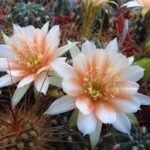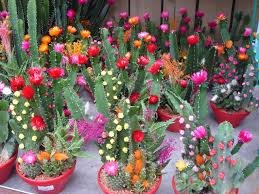
In the realm of tourism, marigold flowers serve as ambassadors of natural beauty, cultural heritage, and vibrant landscapes that captivate the imagination of travelers around the world. From their colorful blooms to their rich symbolism, marigolds play a significant role in shaping the tourism experience, offering visitors opportunities to explore scenic gardens, cultural festivals, and agritourism destinations that celebrate the beauty and cultural significance of these iconic flowers. In this extensive exploration, we delve into the multifaceted relationship between marigold flowers and the tourism industry, uncovering their appeal as tourist attractions, cultural symbols, and economic drivers in destinations across the globe.
**1. Garden Tourism:**
Marigold flowers are celebrated for their ornamental beauty and horticultural diversity, making them popular attractions in botanical gardens, public parks, and private estates around the world. Visitors flock to these destinations to admire the colorful displays of marigold blooms, explore themed gardens dedicated to medicinal plants and traditional herbal remedies, and learn about the cultural significance of marigolds in different regions and cultures.
Botanical gardens often feature curated collections of marigold cultivars, showcasing the wide variety of colors, shapes, and sizes available in this beloved flower species. Visitors can stroll through themed gardens inspired by different cultural traditions, such as Indian marigold garlands, Mexican Day of the Dead altars, and French potager gardens, gaining insights into the historical, culinary, and symbolic roles of marigolds in diverse cultures.
**2. Cultural Festivals:**
Marigold flowers take center stage in cultural festivals and celebrations around the world, where they are used to create elaborate displays, colorful decorations, and vibrant street parades that attract visitors from near and far. In India, marigold garlands are an integral part of religious ceremonies, weddings, and festivals such as Diwali and Dussehra, where they symbolize purity, prosperity, and spiritual blessings.
In Mexico, marigolds are synonymous with the Day of the Dead, or Dia de los Muertos, where they adorn altars, gravesites, and public spaces as offerings to honor deceased loved ones and celebrate the continuity of life and death. During the festival, visitors can participate in marigold-themed workshops, art exhibitions, and cultural performances that showcase the artistic and culinary traditions associated with this iconic flower.
**3. Agritourism Destinations:**
Marigold flowers play a role in agritourism destinations, where visitors can experience farm life, agricultural traditions, and rural landscapes firsthand. In regions known for marigold cultivation, such as India, Mexico, and Kenya, agritourism tours offer visitors opportunities to visit marigold farms, learn about cultivation practices, and participate in harvest activities such as flower picking and garland making.
Agritourism destinations also provide educational programs and workshops on sustainable farming practices, organic gardening, and floral design, allowing visitors to gain insights into the environmental, social, and economic benefits of marigold cultivation. By connecting with local farmers and artisans, visitors can support rural communities, preserve cultural traditions, and promote responsible tourism practices that benefit both people and the planet.
**4. Eco-Tourism Experiences:**
Marigold flowers contribute to eco-tourism experiences that highlight the natural beauty, biodiversity, and ecological significance of native landscapes and protected areas. In regions with diverse flora and fauna, such as Costa Rica, Ecuador, and South Africa, eco-tourism operators offer guided tours, nature walks, and wildlife safaris that showcase the unique ecosystems where marigolds grow alongside other native plants and wildlife.
Eco-tourism experiences often include visits to botanical reserves, national parks, and wildlife sanctuaries where visitors can observe marigold flowers in their natural habitat, learn about their ecological roles, and appreciate their contribution to ecosystem services such as pollination, soil stabilization, and habitat restoration. By promoting sustainable tourism practices, eco-tourism operators help to conserve natural resources, protect biodiversity, and support local communities that depend on the tourism industry for their livelihoods.
**5. Community-Based Tourism Initiatives:**
Marigold flowers inspire community-based tourism initiatives that empower local residents, promote cultural exchange, and generate economic opportunities in rural and indigenous communities. In regions where marigold cultivation is a traditional practice, community-based tourism programs offer visitors authentic experiences that highlight the cultural heritage, culinary traditions, and artisanal crafts associated with marigolds.
These initiatives may include guided tours of marigold farms, workshops on traditional dyeing techniques using marigold petals, and homestay accommodations with local families who cultivate marigolds as part of their livelihoods. By engaging with local communities and supporting their cultural traditions, visitors can gain a deeper appreciation for the cultural and ecological significance of marigold flowers, while contributing to sustainable development and poverty alleviation in rural areas.
**Conclusion:**
In conclusion, marigold flowers play a significant role in the tourism industry, where they serve as symbols of natural beauty, cultural heritage, and vibrant landscapes that attract visitors from around the world. Whether featured in botanical gardens, cultural festivals, agritourism destinations, eco-tourism experiences, or community-based tourism initiatives, marigolds offer opportunities for travelers to connect with nature, learn about diverse cultures, and support sustainable tourism practices that benefit both people and the planet. By embracing the beauty and cultural significance of marigold flowers, the tourism industry can create memorable experiences that inspire wonder, foster understanding, and promote responsible travel in destinations across the globe.









